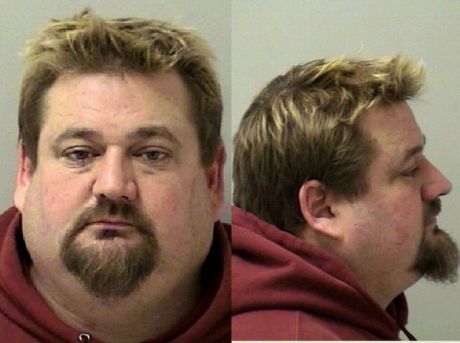Illinois resident Phillip Rinn was so angry at his Lab–Shepherd mix Magda, he beat her with a wooden stick, breaking five of her teeth as she howled in pain. Her cries were so loud, neighbors heard her from inside Rinn’s house. Perhaps the only thing more infuriating than reading about Phillip Rinn was reading that this was not his first offense, nor his most barbaric.
In 1993, Rinn chained his dog to his car and sped off, dragging the animal down the road. When he got out of the car and realized the dog was still alive, he ran him over and tossed him in a ditch. (This dog was not so fortunate as Magda, who did survive and recover from the beating.) Rinn was sentenced to 30 days for in jail for his misdemeanor.
It seems there could be no more persuasive an argument than Phillip Rinn for the establishment of a national animal abuse registry. But surprisingly, not every animal welfare advocate is on board. Some say we should instead be concentrating on stiffening laws and penalties against those who commit such crimes and asking federal agencies to track the data in order to guide law-making decisions.
Yes, let’s do that — absolutely. Let’s continue to work toward stricter legislation and toward its enforcement. Let’s demand humane education in our schools and teach respect for all living things to our children. But in the meantime, let’s prohibit those individuals who serve only 30 days for a prior offense or who missed the class on kindness to animals from ever again having one to torture, starve, beat, or mutilate. Let’s add their names to a national database and make the information available to anyone looking to place or rehome an animal.
HSUS President Wayne Pacelle feels differently. He writes:
“The overwhelming proportion of animal abuse is perpetrated by people who neglect their own animals… But experience has made clear that such individuals would pose a lesser threat to animals in the future if they received comprehensive mental health counseling. Shaming them with a public Internet profile is unlikely to affect their future behavior…”
If abuse is most often perpetrated against one’s own animal, then doesn’t it make sense to forbid abusers from having their own animals? I’m not particularly interested in creating a “lesser threat” — I’m going for no threat. I would rather see Rinn’s name on a “Forbidden to Have Animals” list (and know for certain that he’s not beating his dog senseless) than hope that counseling rehabilitates him while he goes out and gets a new pet.
Why am I picking on HSUS? Because it’s one of the few animal welfare organizations with the resources and the reach to create such a registry and to distribute the information across the country. If Wayne Pacelle wants to use additional HSUS funds to provide rehabilitation services too — terrific, I’m all for it.
The reality, however, is that counseling only works when the individual wants it to work, and part of that is admitting there’s an issue to address. But Rinn can’t even acknowledge he has a problem. “I’m not some dog killer who did some sick deed,” he said about the dragging incident. “I like dogs as much as anyone.”
Mr. Rinn, I hope you don’t show your affinity to the neighborhood kids the same way you “like” dogs — you know, by chaining them to a moving vehicle. And I’m sorry you didn’t get the therapy in 1993 that would have it made it less likely for you to beat up the animal you had in 2010. But I’m not in favor of giving you another chance, with or without rehabilitation. Instead, I’m starting a database, and Phillip Rinn, you’re the first entry.
Please don’t send Phillip Rinn death threats. Don’t harass his family or desecrate his property. Just don’t believe his promises to never harm again. Don’t ever adopt, sell, or entrust him with an animal of any kind. Don’t leave him alone in a room with a goldfish or even a Chia-pet. But if you’re a shelter administrator, a breeder, or a rescue worker, memorize this face. Especially if you live around Aurora, Illinois.









